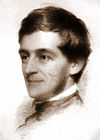Related Research Articles

Ralph Waldo Emerson, who went by his middle name Waldo, was an American essayist, lecturer, philosopher, abolitionist, and poet who led the Transcendentalist movement of the mid-19th century. He was seen as a champion of individualism and critical thinking, as well as a prescient critic of the countervailing pressures of society and conformity. Friedrich Nietzsche thought he was "the most gifted of the Americans", and Walt Whitman called him his "master".
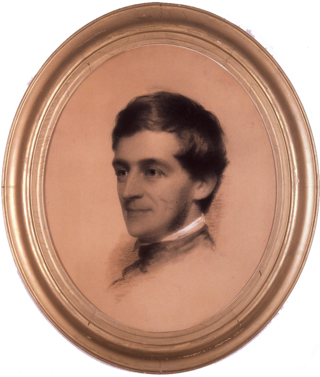
"Self-Reliance" is an 1841 essay written by American transcendentalist philosopher Ralph Waldo Emerson. It contains the most thorough statement of one of his recurrent themes: the need for each person to avoid conformity and false consistency, and follow his or her own instincts and ideas. It is the source of one of his most famous quotations:
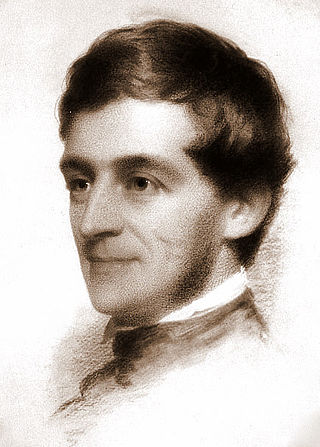
Nature is a book-length essay written by Ralph Waldo Emerson, published by James Munroe and Company in 1836. In the essay Emerson put forth the foundation of transcendentalism, a belief system that espouses a non-traditional appreciation of nature. Transcendentalism suggests that the divine, or God, suffuses nature, and suggests that reality can be understood by studying nature. Emerson's visit to the Muséum National d'Histoire Naturelle in Paris inspired a set of lectures he later delivered in Boston which were then published.

"The American Scholar" was a speech given by Ralph Waldo Emerson on August 31, 1837, to the Phi Beta Kappa Society of Harvard College at the First Parish in Cambridge in Cambridge, Massachusetts. He was invited to speak in recognition of his groundbreaking work Nature, published a year earlier, in which he established a new way for America's fledgling society to regard the world. Sixty years after declaring independence, American culture was still heavily influenced by Europe, and Emerson, for possibly the first time in the country's history, provided a visionary philosophical framework for escaping "from under its iron lids" and building a new, distinctly American cultural identity.

"Compensation" is an essay by Ralph Waldo Emerson. It appeared in his book Essays, first published 1841. In 1844, Essays: Second Series was published, and subsequent editions of Essays were renamed Essays: First Series.
The Transcendentalist is a lecture and essay by American writer and thinker Ralph Waldo Emerson. It is one of the essays he wrote while establishing the doctrine of American Transcendentalism. The lecture was read at the Masonic Temple in Boston, Massachusetts in January 1842.
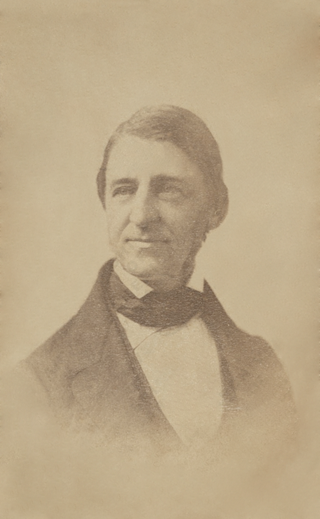
The Conduct of Life is a collection of essays by Ralph Waldo Emerson published in 1860 and revised in 1876. In this volume, Emerson sets out to answer "the question of the times:" "How shall I live?" It is composed of nine essays, each preceded by a poem. These nine essays are largely based on lectures Emerson held throughout the country, including for a young, mercantile audience in the lyceums of the Midwestern boomtowns of the 1850s.
"The Over-Soul" is an essay by Ralph Waldo Emerson first published in 1841. With the human soul as its overriding subject, several general themes are treated: (1) the existence and nature of the human soul; (2) the relationship between the soul and the personal ego; (3) the relationship of one human soul to another; and (4) the relationship of the human soul to God. The influence of Eastern religions, including Vedanta, is plainly evident, but the essay also develops ideas long present in the Western philosophical canon and the theology of Emanuel Swedenborg.
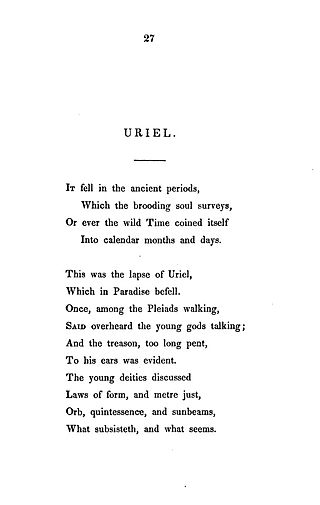
"Uriel" is a poem by American writer Ralph Waldo Emerson.
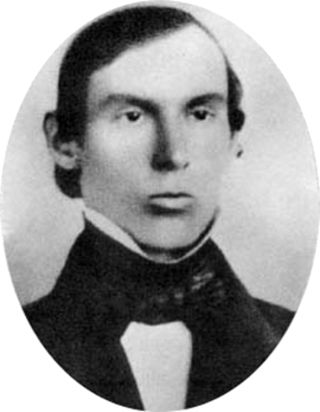
Jones Very was an American poet, essayist, clergyman, and mystic associated with the American Transcendentalism movement. He was known as a scholar of William Shakespeare, and many of his poems were Shakespearean sonnets. He was well-known and respected among the Transcendentalists.
Douglas Crase is an American poet, essayist and critic. He was born in 1944 in Battle Creek, Michigan. His poetry collection, The Revisionist, was nominated for a National Book Critics Circle Award and an American Book Award. He is a former MacArthur Fellow and the recipient of a Whiting Award. Crase lives in New York City and Honesdale, Pennsylvania. His work has been published in many collections, including his poem "Astropastoral", found in The KGB Bar Book Of Poems edited by David Lehman and Star Black.
"Brahma" is a poem by Ralph Waldo Emerson, written in 1856. However, the poem was published in the November 1857 issue of The Atlantic. It is named for Brahman, the universal principle of the Vedas.
Hyson, or Lucky Dragon Tea, is a Chinese green tea that comes from the Anhui province of China. It is made from young leaves that are thinly rolled to have a long, twisted appearance that unfurls when brewed. The name Hyson is probably derived from an Amoy name, although there are also anecdotal claims that it was named after an English tea merchant, Phillip Hyson. Hyson is graded into the following three categories: Mi Si, Cheng Si and Fu Si.
Essays: Second Series is a series of essays written by Ralph Waldo Emerson in 1844, concerning transcendentalism. It is the second volume of Emerson's Essays, the first being Essays: First Series. This book contains:
- "The Poet"
- "Experience"
- "Character"
- "Manners"
- "Gifts"
- "Nature"
- "Politics"
- "Nominalist and Realist"
- "New England Reformers"
Ralph Waldo Emerson wrote several books of essays, commonly associated with transcendentalism and romanticism. "Essays" most commonly refers to his first two series of essays:

The transparent eyeball is a philosophical metaphor originated by American transcendentalist philosopher Ralph Waldo Emerson. In his essay Nature, the metaphor stands for a view of life that is absorbent rather than reflective, and therefore takes in all that nature has to offer without bias or contradiction. Emerson intends that the individual become one with nature, and the manner of the transparent eyeball is an approach to achieving it.
Mary Moody Emerson was an American letter writer and diarist. She was known not only as her nephew Ralph Waldo Emerson's "earliest and best teacher", but also as a "spirited and original genius in her own right". Ralph Waldo Emerson considered her presence in his life a “blessing which nothing else in education could supply”; and her vast body of writing—her thousands of letters and journal entries spanning more than fifty years—"became one of Emerson's most important books". Her surviving documents reveal the voice of a "woman who […] had something to say to her contemporaries and who can continue to speak to ours" about "the great truths that were the object of her life's pilgrimage".
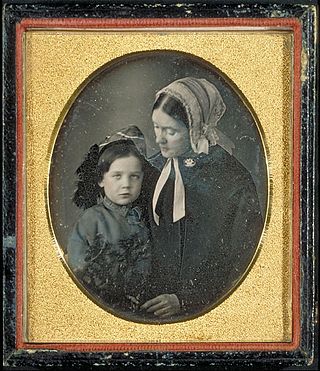
Edward Waldo Emerson was an American physician, writer and lecturer.
Ralph Waldo Emerson's "Letter to Martin Van Buren" (1838) was written in response to the government's efforts to remove the Cherokee people from their native lands. In his letter to then-president Martin Van Buren, Emerson strongly represents that he, as well as other citizens of the American nation, feel that the American government is committing a serious evil crime in proceeding with the removal of the Cherokee. He stresses the efforts of the aboriginal population by stating that "Even in our distant state, some good rumor of their worth and civility has arrived. We have learned with joy their improvement in social arts. We have read their newspapers. We have seen some of them in our schools and colleges. In common with the great body of the American people we have witnessed with sympathy the painful labors of these red men to redeem their own race from the doom of eternal inferiority, and to borrow and domesticate in the tribe, the arts and customs of the Caucasian race." ." In the conclusion of the letter, Emerson questions the morality of a government that could put "so vast an outrage upon the Cherokee nation, and upon human nature ."

The Carlyle–Emerson correspondence is a series of letters written between Thomas Carlyle (1795–1881) and Ralph Waldo Emerson (1803–1882) from 14 May 1834 to 20 June 1873. It has been called "one of the classic documents of nineteenth-century literature."
References
- ↑ Ralph Waldo Emerson (1983). Essays and Lectures. Library of America. pp. 401–414. ISBN 0-940450-15-1 . Retrieved 2010-01-18.
